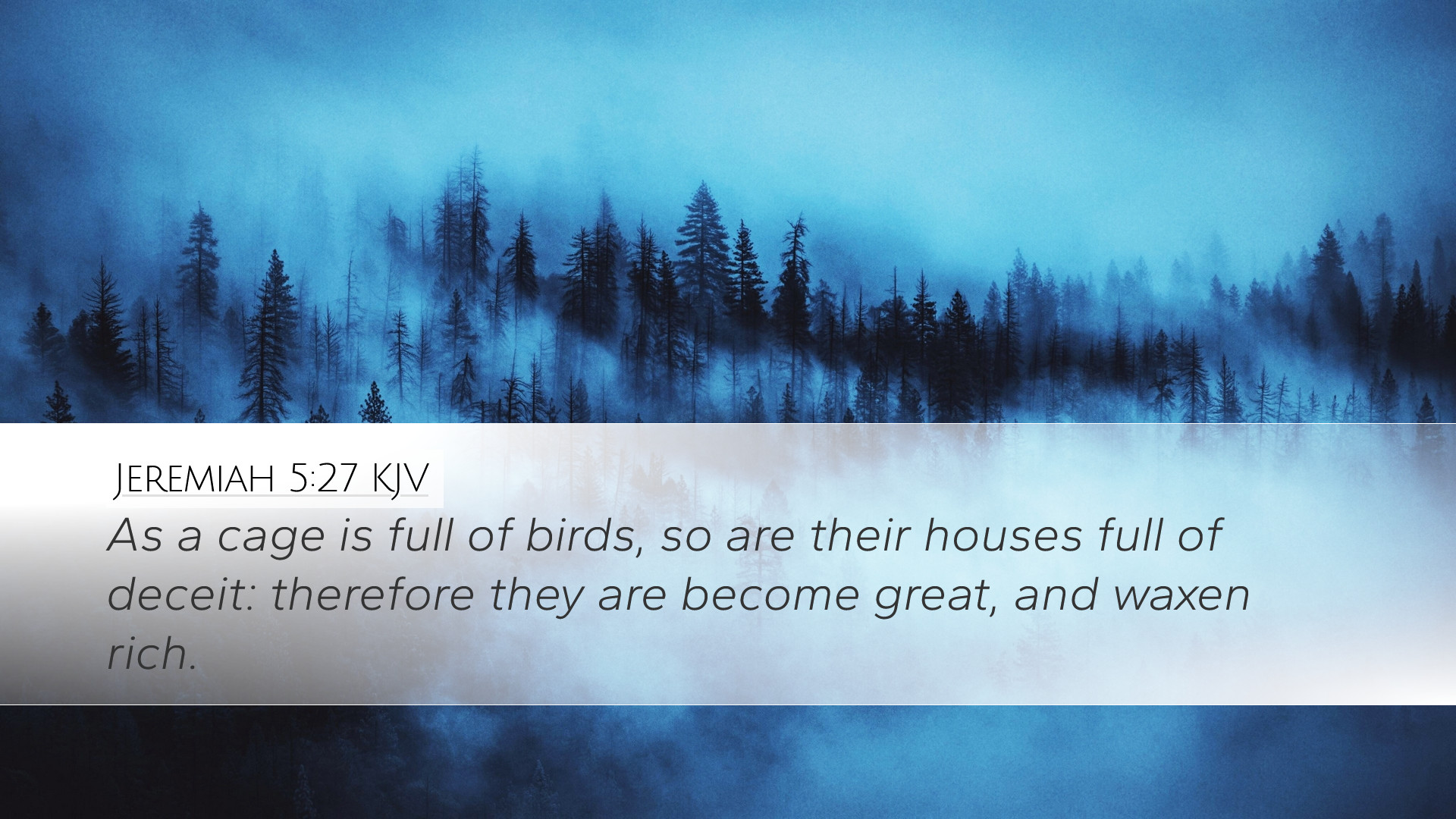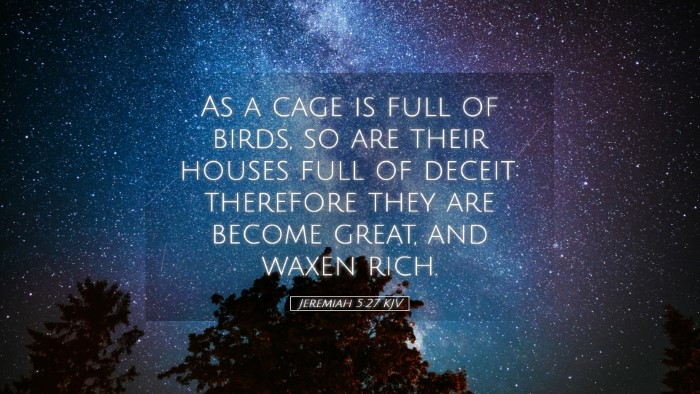Commentary on Jeremiah 5:27
Verse Context: Jeremiah 5:27 states, "As a cage is full of birds, so are their houses full of deceit: therefore they are become great, and waxen rich." This verse serves as a profound condemnation of the moral and spiritual decay prevailing among the people of Judah.
Overview of the Passage
This verse comes during a time when the prophet Jeremiah was called to deliver God’s message of impending judgment due to the rampant corruption and idolatry that had taken root in society. The metaphor of a cage filled with birds vividly illustrates how the houses of the people were packed with deceit and sinful practices.
Exegesis from Public Domain Commentaries
Matthew Henry's Commentary
Matthew Henry provides a detailed insight into the nature of the 'cage' and its significance in understanding the motives of the people. He notes that just as a cage is designed to hold birds captive, the houses of the people serve to harbor deceitful practices:
- Deception and Avarice: Henry illustrates how the wealth accumulated through deceit led to a desensitized and corrupt society, enriching the wicked while the righteous suffered.
- Judgment Ahead: He emphasizes that such prosperity founded on deception invites divine judgment. The vivid imagery warns that despite their apparent prosperity, they are ensnared in a web of their own making.
Albert Barnes' Notes on the Bible
Albert Barnes expands on the implications of deceit in the homes of the people. He argues that:
- Illusions of Wealth: He asserts that the wealth and power accumulated through deceit do not equate to genuine prosperity. This prosperity is built upon a foundation of lies and ultimately leads to destruction.
- Social and Spiritual Decay: Barnes highlights that the 'deceit' mentioned is not limited to financial gain but extends to social structures that oppress the innocent, showcasing the broader moral decline.
Adam Clarke's Commentary
Adam Clarke offers an analytical view of the symbolism within the verse. He discusses how:
- Human Nature and Sin: Clarke suggests that the tendency towards deceit is intrinsic to human beings. The blindness to their moral state illustrates the power of sin to entrap individuals.
- Call to Repentance: Clarke emphasizes that God's message through Jeremiah is a call for introspection and repentance, urging the people to recognize their sinful ways before it is too late.
Theological Implications
This verse raises critical theological themes, including the nature of sin, the justice of God, and the consequences of moral failure. The imagery used reflects not only the immediate implications for the Israelites but also extends to contemporary lessons for both individual believers and society as a whole.
Deceit as a Cultural Normalcy
The normalization of deceit within the cultural fabric of Judah is a cautionary note for today’s readers. Pastors and theologians must consider how societal values can subtly shift towards dishonesty, leading to spiritual complacency. The call for integrity and truthfulness remains ever relevant.
Prosperity and Judgment
The juxtaposition of wealth and moral bankruptcy poses serious questions regarding the relationship between material prosperity and spiritual health. This invites a deeper exploration into how churches and communities evaluate success and godliness.
Repentance and Restoration
The underlying theme of Jeremiah’s message encourages a perspective of repentance. The possibility of restoration hinges on the acknowledgment of sin and the willingness to return to God. This remains essential for personal and communal healing.
Conclusion
Jeremiah 5:27 stands as a resonant warning against the dangers of deceit and spiritual apathy. It challenges readers—pastors, students, theologians, and scholars—to critically engage with the text and apply its truths within their own context. Drawing from the wisdom of public domain commentaries enriches the understanding of this profound verse, offering timeless insights while urging an authentic pursuit of righteousness in the face of societal decay.


